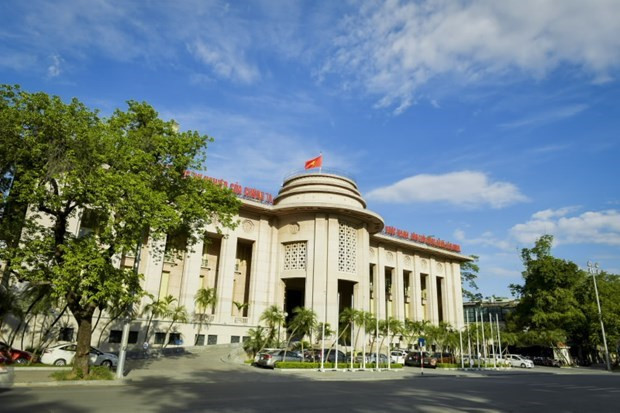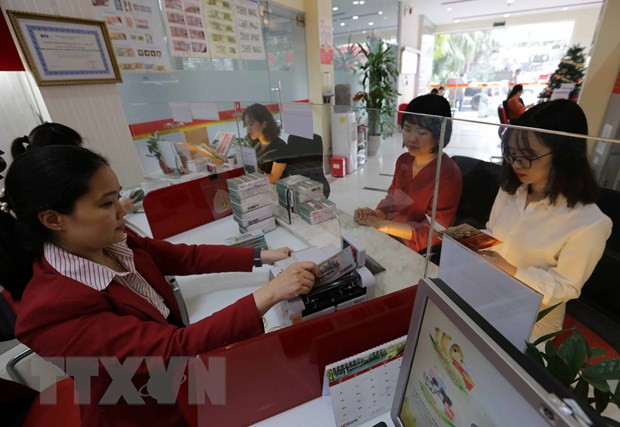Hanoi (VNA) - The US Treasury Department’slabelling of Vietnam as a currency manipulator is groundless and certainlysignificantly affects the psychology of the Vietnamese business community,especially those operating in the import and export field, according to HoangQuang Phong, Vice President of the Vietnam Chamber of Commerce and Industry(VCCI).
He quoted Prime Minister Nguyen Xuan Phuc as saying that Vietnam does notmanipulate the currency, but flexibly regulates monetary policy to controlinflation, stabilise the macro-economy, and manage exchange rates. It does notaim to create unfair competitive advantages in international trade.
The Prime Minister also instructed the competent agencies to work with USpartners to together solve existing problems in order to maintain stable traderelations, towards a harmonious, sustainable and mutually beneficiary tradebalance, he said.
Phong added that the State Bank of Vietnam also urged commercial banks to makeadjustments in exchange rates, and if necessary, to reduce profits to createfavourable conditions for businesses to gain easier access to capital flows andforeign currencies.
With such accusations, it will not be easy to persuade partners, especiallythose from the US, he said, noting this is the time for a consensus among thebusiness community to change the way of thinking and implement many solutionssuch as bargaining and negotiating before the US promulgates and imposessubsequent measures.
In parallel with the efforts of the Government and competent agencies, he wenton, the business community needs to focus resources to increase the legalcompliance capacity and improve knowledge and understanding about laws onintegration and international commitments under signed free trade agreements.
Enterprises, especially importers and exporters, should quickly study and graspinformation about trade dispute resolution methods, including the use of tradeand international arbitration, he said.
Vu Duc Giang, Chairman of the Vietnam Textile and Apparel Association, said businesses,especially those in the garment and textile industry, need to improve theirsupply chains, thereby improving quality and reducing production costs. In casesanction measures are applied, they should work with US partners to minimise possibleimpacts and damage.
According to Asso. Prof. Dr. Nguyen Duc Thanh from the Vietnam Centre forEconomic and Strategic Studies (VESS), to avoid impacts on the domesticeconomy, Vietnam should review the current balance, actively balance trade, andincrease imports from the US stably, thus reaching trade balance with the Americancountry.
"Currently, the US side wants to reduce competition from Vietnam,especially the goods that it thinks originating from the Republic of Korea orChina but through Vietnam to export to the US. Therefore, Vietnam needs to becautious and stand proactive in strictly controlling goods imported intoVietnam in this form, particularly those from China that are subject to the US’shigh tax rates,” he said.
Keeping a close watch on the national financial and monetary policy of Vietnam formore than 20 years, Dr. Tran Du Lich, member of the National Monetary andFinancial Policy Advisory Council, affirmed that Vietnam has never had a policy of devaluing itscurrency in the form of currency manipulation to create competitive advantages ininternational trade.
He explained that the Vietnamese economy is mainly based on the processingindustry that imports raw materials for processing and production. Therefore,if Vietnam devaluates the currency, it will lead to the burden of increasinginput costs for production.
In addition, as national debts are mainly from foreign corporate loans, the currencydevaluation will push debts in VND up.
These are the two main reasons proving that Vietnam does not manipulate its currencyas the US side accused, Lich stressed.
OnDecember 16, Vietnam, together with Switzerland, was labelled by the USDepartment of Finance as a currency manipulator.
The US uses three criteria todetermine if a country is a currency manipulator. In addition to the currentaccount surplus criterion, the two others are a bilateral trade surplus withthe US of at least 20 billion USD and intervention in foreign-exchange marketsthat exceeds 2 percent of GDP./.






























